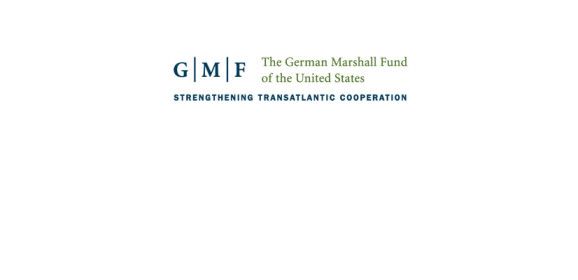Section: The German Marshall Fund of the United States (USA)
Sorry West, Russia’s Just Not That Into You: Preparing for Long-Term Estrangement
Transatlantic TakePresident Putin is benefitting from the present hostilities with the West, so last week’s attempts by some European leaders and Donald Trump to ease tensions are doomed to fail. In the coming years, the West should expect estrangement from Russia, at best, and hostilities, at worst. The key question for European and U.S....
A Normandy Summit of Ulterior Motives
Photo courtesy of Kremlin.ru At shortest-possible notice, the leaders of Ukraine and Russia, France and Germany meet in Berlin this Wednesday (19 October) to discuss the war in Eastern Ukraine. This gathering in the so-called Normandy format, at summit level and announced only a day ago, suggests great urgency. However, there has been neither a...
How Real is American Disenchantment with NATO?
Transatlantic TakeWASHINGTON – An embittered U.S. elections cycle full of attention-grabbing headlines has cast a large shadow across the Atlantic. As the campaign rhetoric heats up, U.S. allies are collectively holding their breath, waiting to see what the future of U.S. global engagement and its commitment to existing alliance structures...
EU – A Way Forward
The current political and societal developments within the European Union, the armed conflicts around Europe, and the various threats to European security compose a troublesome and confusing geopolitical context, marked by many unknowns and moving pieces. The numerous internal and external rifts are so profound, that not only is Europe’s...
Judy Asks: Are Referenda Dangerous?
Rosa Balfour – Senior fellow in the Europe Program at the German Marshall Fund of the United States Little wisdom is to be found in the contemporary use of referenda. They are sold as tools of direct democracy to promote political participation among citizens who have turned away from politics. But in practice, they prize majoritarian...
Putin Has Made Russia America’s Top Spoiler, Not Its Global Peer
Transatlantic TakeRussia has dominated the U.S. foreign policy discussion in recent weeks, and it has been an international issue making headlines throughout the U.S. presidential election campaign. With its actions in Syria and Ukraine, its probing of the Euro-Atlantic security architecture, and its apparent interference in the U.S. campaign,...
Russia’s Challenge to the European Security Order
For Europe and the United States, the Ukraine crisis has made it clear that many of the assumptions governing European and Euroatlantic security for the past two-plus decades no longer apply.[1] The most significant casualty of the Ukraine conflict may be the belief that Russia would eventually accommodate itself to the European and Euroatlantic...
Belarus: Unreal elections and their very real effects
Photo By: President of Russia Elections in Belarus do not typically leave much room for surprise. In the fully-fledged autocracy that the country has become since the 1994 ascent to power of Alexander Lukashenka, no ballot has been left to chance. Instead, votes have followed an ever-more refined script that is aimed exclusively at affirming the...
Do Not Give Up on Russian Democracy
Transatlantic TakeTo no one’s surprise, Sunday’s parliamentary elections in Russia came nowhere close to challenging President Vladimir Putin’s regime. His United Russia party remains utterly dominant, and the only three other parties in the Duma will be the co-opted “systemic” opposition parties, such the Communists. The...
Belarus Elections: Invisible, But Not Trivial
Photo by Serge Serebro In what may well qualify as their country’s most invisible election ever, Belarusians went to vote for a new parliament last Sunday (11 September). Only once the polls closed did the ballot draw broader attention: for the first time in over a decade a pair of opposition-minded candidates made it into the House of...



